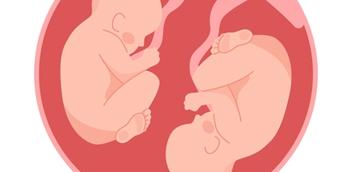
Low-Dose Levonorgestrel IUDs Highly Effective Even After 3 Years of Use
New research shows low-dose intrauterine contraceptive devices are safe and effective in preventing pregnancy after 3 years, and their use could be expanded among women who have not had children.
The use of low-dose levonorgestrel intrauterine contraceptive devices could be expanded, researchers suggested after their randomized controlled trial showed the low-dose devices are effective in preventing pregnancy.
Two IUDs were studied for 3 years, with the researchers reporting that both were safe and effective in preventing pregnancies.
Over the 3-year study period, the researchers followed about 2,800 women aged 18 to 35 years with regular menstrual cycles. About half of these women received an IUD with 13.5 mg of levonorgestrel, and the other half used an IUD with 19.5 mg of levonorgestrel. (Currently, the higher-dose intrauterine contraceptive system has 52 mg of levonorgestrel.)
The study reported 0.33 pregnancies per 100 women-years (95% confidence interval [CI], 0.16–0.60) with the 13.5-mg system, compared with 0.31 per 100 women-years (95% CI, 0.15–0.57) with the 19.5-mg system.
The researchers also said their results showed the low-dose versions were well-tolerated overall. However, at least partial expulsions occurred in 4.56% of women using the 13.5-mg system and in 3.58% of women using the 19.5-mg device. Discontinuation rates resulting from a reported adverse event occurred in 21.9% and 19.1%, respectively. In addition, 10 of the 20 pregnancies that occurred were ectopic, there were 6 cases of pelvic inflammatory disease, and there was 1 case of partial uterine perforation.
"By demonstrating the safety and efficacy of low-dose intrauterine contraceptive devices, this study will help expand the contraceptive options available to women who have not had children before," said Anita Nelson, MD, the corresponding author of the study, in a news release. "Additionally, a lower dose system may be preferable to women who are seeking to reduce their exposure to synthetic hormones."
Pertinent Points:
- Low-dose levonorgestrel intrauterine contraceptive devices are safe and effective in preventing pregnancy, according to the results of a 3-year randomized trial reported this month.
- The researchers studied IUDs containing 13.5 mg of levonorgestrel and 19.5 mg of levonorgestrel.
- The corresponding author suggested that the use of low-dose IUDs could be expanded among women who have not had children.
References:
Reference
Nelson A, Apter D, Hauck B. Two low-dose levonorgestrel intrauterine contraceptive systems: a randomized controlled trial.
Obstet Gynecol.
2013;122:1205-1213.
Newsletter
Get the latest clinical updates, case studies, and expert commentary in obstetric and gynecologic care. Sign up now to stay informed.









